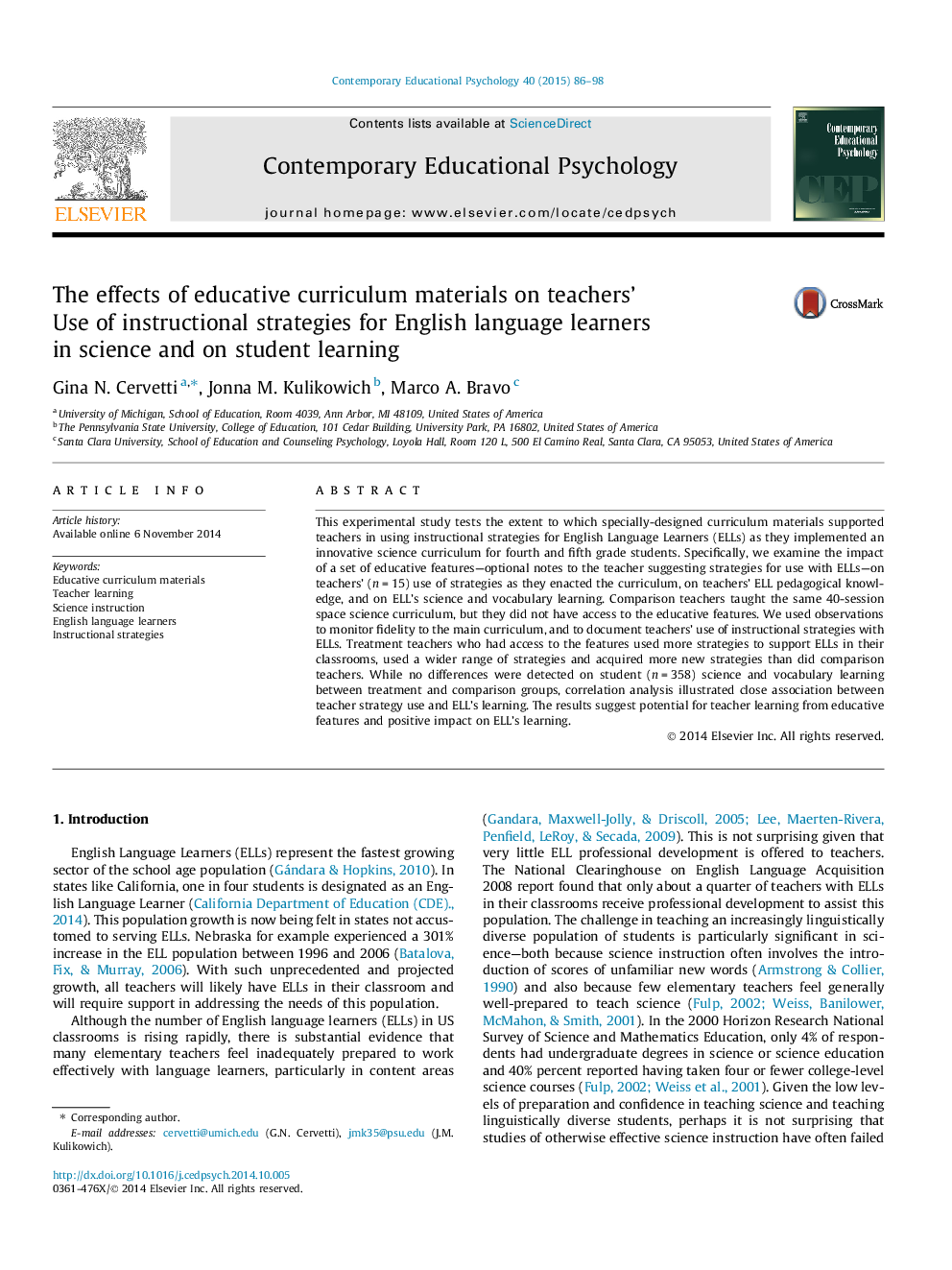| Article ID | Journal | Published Year | Pages | File Type |
|---|---|---|---|---|
| 352583 | Contemporary Educational Psychology | 2015 | 13 Pages |
•Teachers taught a science unit with or without notes describing strategies for ELL.•Treatment teachers used more instructional strategies for ELL.•Treatment teachers used a wider range of strategies.•Treatment teachers added more strategies to their pedagogical repertoires.•Student learning outcomes did not differ across treatment groups.
This experimental study tests the extent to which specially-designed curriculum materials supported teachers in using instructional strategies for English Language Learners (ELLs) as they implemented an innovative science curriculum for fourth and fifth grade students. Specifically, we examine the impact of a set of educative features—optional notes to the teacher suggesting strategies for use with ELLs—on teachers’ (n = 15) use of strategies as they enacted the curriculum, on teachers’ ELL pedagogical knowledge, and on ELL’s science and vocabulary learning. Comparison teachers taught the same 40-session space science curriculum, but they did not have access to the educative features. We used observations to monitor fidelity to the main curriculum, and to document teachers’ use of instructional strategies with ELLs. Treatment teachers who had access to the features used more strategies to support ELLs in their classrooms, used a wider range of strategies and acquired more new strategies than did comparison teachers. While no differences were detected on student (n = 358) science and vocabulary learning between treatment and comparison groups, correlation analysis illustrated close association between teacher strategy use and ELL’s learning. The results suggest potential for teacher learning from educative features and positive impact on ELL’s learning.
